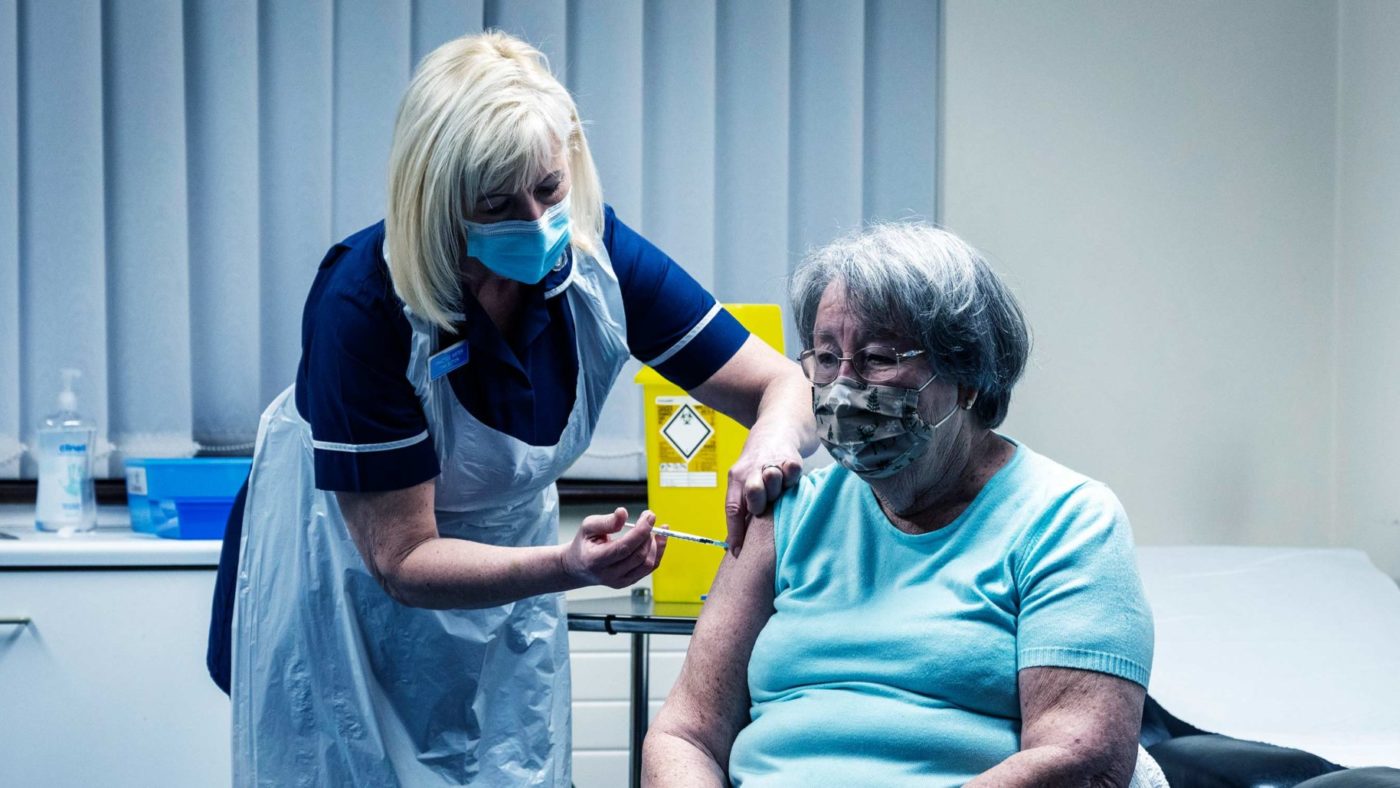Welcome to the New Year, same as the old one. If 2020 will go down as an annus horribilis, the first few months of 2021 don’t look much better at the moment. What hope there is for a return to normality rests on a speedy and efficient vaccination programme.
The UK ought to be ahead of the game here. After all, Britain was the first country in the world to approve a Covid vaccine — a bright spot in an otherwise muddled, fitful response to the pandemic. But since all the fanfare as Margaret Keenan got the first Pfizer/BioNTech jab a few weeks ago, progress has been utterly lacklustre. The UK may remain at the top of world leaderboards for vaccinations completed, but as the authors of the Adam Smith Institute’s newest report, Worth a Shot: Accelerating Covid-19 vaccinations, say, “there is little value in comparing ourselves to those who are failing altogether”.
In his TV address last night, Boris Johnson set out the expected pace of the programme from now on, with the NHS aiming to have vaccinated all of the most at-risk groups — around 14 million people in total — by February. If the health service is to succeed in that task it will require a dramatic improvement on current performance.
As it stands, we are only vaccinating at a rate of 43,000 per day, or 300,000 a week. To put that in context, to hit the Prime Minister’s stated target by the end of February half-term we will need to be vaccinating nearly 2 million people a week, a six-fold increase on the current rate. Even then, though, we will be nowhere near the number of vaccinations we need to get life back to normal and, as Mr Johnson said, we’ll still need various economy-crushing restrictions in place.
So why have things been so slow until now?
A big part of it is down, once again, to an excessively command-and-control approach. The NHS is taking charge, limiting vaccinations to hospitals and GPs, and rebuffing help from outsiders. It risks turning into just another embarrassing bureaucratic catastrophe.
There is a better way though.
‘Worth a Shot’ outlines a comprehensive plan for rapidly increasing vaccination capabilities, which is both urgently needed and eminently possible. Setting an ambitious target of 6 million doses a week, the paper urges the Government to devote as much time and resources as possible to our new challenge, which is ultimately the only solution to the pandemic. We must also learn from other countries, employ the expertise of the private sector, Armed Forces, and retired medical professionals, and identify and address potential disruptions to vaccine supply and distribution.
It sounds like a monumental task, but there are clear examples to follow. Israel has quickly become a world leader in vaccine distribution. They are currently vaccinating at 10 times the rate of the UK, when adjusted for population. They have done that by employing mobile vaccination sites, offering on-the-spot vaccinations for anyone available at the end of the day to drastically reduce vaccine waste, and engaging community leaders in a concerted publicity campaign. The UK should implement all three of these policies as soon as possible.
And besides learning from other countries, we can learn from our own mistakes. We cannot allow the errors made earlier in 2020, around testing, track and trace, and PPE, to be replicated now. The Government and public health apparatus have shown themselves to be heavily resistant to outside help or advice, repeatedly shunning assistance from the private sector and non-NHS medical providers. In order to come out the other side of this mess, the Government must take an open and active approach to decentralising vaccine distribution.
Right now, there are thousands of private pharmacies, like Boots, ready and capable to deliver vaccines; companies such as BrewDog have offered their empty facilities, complete with professional-grade refrigeration capacity, as vaccine sites; the Armed Forces have the logistic and medical expertise needed to assist with mass mobilisation. All of these avenues must be explored to their fullest potential.
Additionally, the Government must take a leading role in communicating effectively with the public the status of vaccine procurement, how rapidly we are meeting targets (or more likely which targets are being missed) and the steps being taken to minimise bottlenecks. This should be accompanied by a slick and widespread publicity campaign to push back against rising rates of vaccine hesitancy.
We have seen the light at the end of the tunnel. The medical community has risen to the immense challenge put in front of them and delivered not one, but several, working vaccines. We cannot let them down by refusing to learn from others or our own mistakes. Lives are at stake.
Click here to subscribe to our daily briefing – the best pieces from CapX and across the web.
CapX depends on the generosity of its readers. If you value what we do, please consider making a donation.


